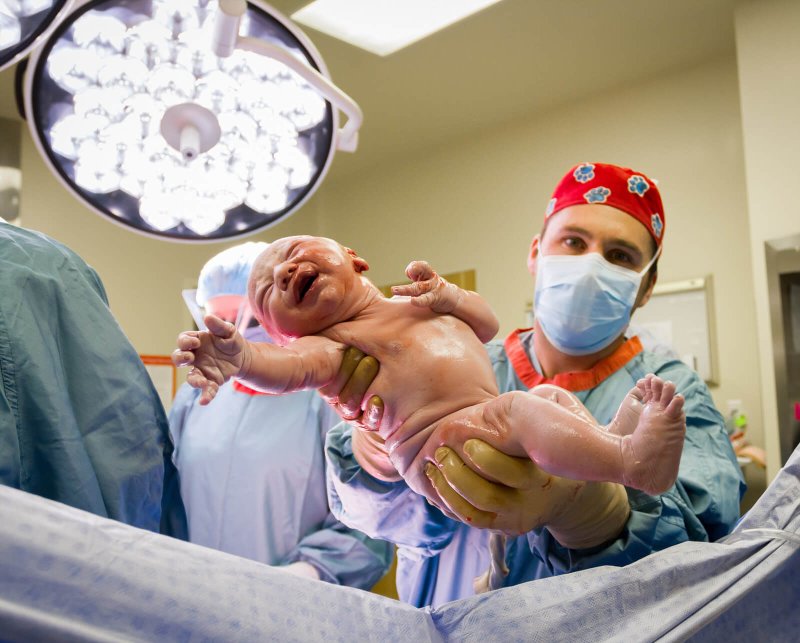Previous research has suggested that a lack of exposure to some microbes in early life is implicated in autoimmune diseases such as asthma, allergies and diabetes.
But scientists have not yet been able to work out how important the initial gut microbiome — or “baby biome” — is to future immunity and health, or how a baby’s microbiome develops, or what happens to it with different modes of birth.
In this research, published in the journal Nature, scientists from University College London, Wellcome Sanger Institute and Birmingham University used DNA sequencing to analyze more than 1,600 gut bacteria samples from 175 mothers and almost 600 babies.
In samples from mothers and from the babies at 4, 7 and 21 days old, the team found there was a significant difference between the two delivery methods — with vaginally delivered babies having many more health-associated bacteria from their mothers than babies born by Caesarean.
In place of some of the mothers’ bacteria, the C-section babies had more bacteria typically found in hospitals, the researchers said, and these bugs were also more likely to be drug-resistant.
Read full, original post: Babies born by Caesarean section have different gut bacteria from other infants, researchers say































